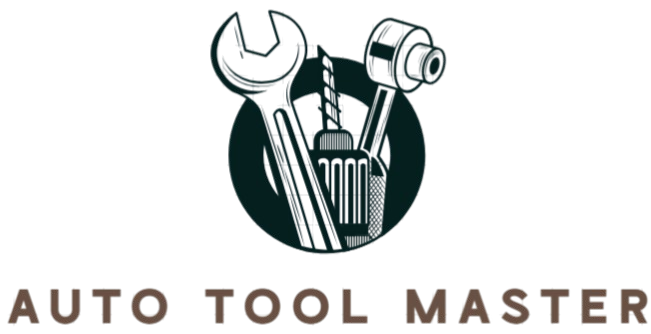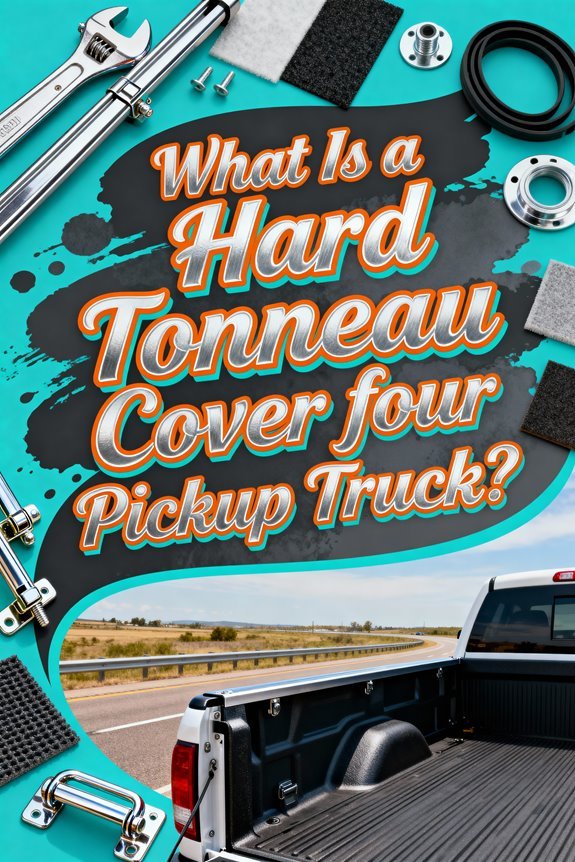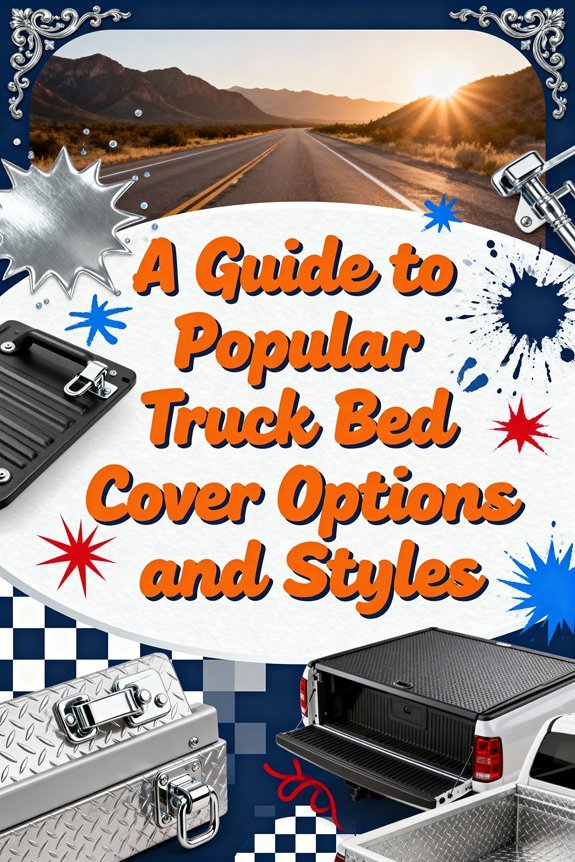A hard tonneau cover is a rigid, lockable lid system for your truck bed, crafted from durable materials like aluminum, fiberglass, or composite blends. It transforms your open bed into a secure, weatherproof cargo space that shields valuables from theft and elements. You’ll benefit from improved aerodynamics that can boost fuel efficiency by 5-10% at highway speeds. These covers typically support 300-500 pounds of distributed weight, with premium models handling considerably more. Understanding the various styles, security features, and material options will help you select the ideal protection for your specific hauling needs.
Understanding Hard Tonneau Covers and Their Primary Functions
Hard tonneau covers transform pickup truck beds into secure, weather-resistant cargo spaces through their rigid construction and engineered sealing systems. You’ll find these covers shield your cargo from rain, snow, wind, and debris while protecting the truck bed from rust and abrasions. Their lockable mechanisms deter theft by concealing valuables and preventing unauthorized access. The aerodynamic design reduces air drag, improving fuel efficiency by 5-10% at highway speeds. Installation tips vary by model, with most systems featuring clamp-on or bolt-in mounting for straightforward setup. Maintenance advice includes regularly inspecting seals and hinges, cleaning surfaces to prevent corrosion, and lubricating moving parts. These covers offer year-round protection while enhancing your truck’s appearance and potentially increasing resale value through functional upgrades. The secure enclosure prevents items from shifting or spilling during transport, maintaining organization within the truck bed until you reach your destination. For those seeking maximum cargo space, retractable models like the Roll-N-Lock M-Series feature a compact housing canister measuring just 7 1/4 inches, making it the smallest available option. Hard tonneau covers are available in various materials, with aluminum and composite construction options providing different balances of weight, durability, and price points.
Materials Used in Hard Tonneau Cover Construction
The performance characteristics that define hard tonneau covers stem directly from their material composition and engineering. You’ll find aluminum panels dominating premium designs due to exceptional material durability and corrosion resistance. Fiberglass offers impact strength with paintable finishes, while composite blends balance weight reduction with weather resistance. Construction techniques employ expanded foam cores sandwiched between exterior panels, creating rigid structures with thermal insulation properties. ABS plastic and polycarbonate panels deliver robust protection in folding configurations. Reinforced aluminum or steel side rails provide frame integrity, while powder coating and gel coat finishes guarantee long-term surface protection. Marine-grade seals prevent water ingress, and hardened steel locking mechanisms offer security. Fiberglass covers provide superior dent resistance compared to aluminum alternatives, though they typically weigh more and carry a higher price point starting around $600 to $1000. These engineered materials work synergistically to create covers that withstand environmental stresses while protecting cargo effectively. Hard covers featuring aluminum or fiberglass construction provide higher resistance to vandalism compared to soft vinyl alternatives. Installation hardware typically includes aluminum clamps and tracks that secure the cover to the truck bed rail system for proper panel operation.
Different Styles and Opening Mechanisms Available
When selecting a hard tonneau cover, understanding the opening mechanism directly impacts your daily functionality and cargo management strategy. Five primary cover styles dominate the market: hard folding designs feature multiple rigid panels that fold back for partial or full bed access; retractable systems use interlocking slats that slide into a canister for unobstructed bed access; hard roll-up covers combine flexible operation with rigid aluminum slats; one-piece covers provide simple hinged access from a single panel; and heavy-duty models prioritize maximum security with robust locking mechanisms. Each opening mechanism offers distinct trade-offs between convenience, security, and weather protection. Folding and retractable styles deliver superior accessibility, while one-piece and heavy-duty options emphasize simplicity and protection. Roll-up models often feature canvas material reinforced with aluminum for a balance of flexibility and strength. Retractable covers typically command a higher price point but excel in convenience and often support top-load capacity of several hundred pounds, making them particularly popular among overlanders. Hard covers generally offer exceptional longevity, with hard folding styles lasting 5-10 years while one-piece models can endure 10-20 years with proper maintenance. Your choice depends on balancing operational frequency against security requirements.
Weight Considerations and Payload Impact
Beyond aesthetics and functionality, your hard tonneau cover’s weight introduces practical considerations that directly affect your truck’s payload capacity and operational efficiency. Hard covers typically weigh 40-150 pounds, with lightweight ABS models around 58 pounds and popular aluminum options like the BAKFlip F1 weighing 64-68 pounds. This weight subtracts directly from your truck’s total payload capacity, requiring careful load planning to avoid overloading.
Weight distribution becomes critical when placing cargo on top of your cover. Most hard tonneau covers support 300-500 pounds when evenly distributed, though premium models like the DiamondBack HD handle up to 1,600 pounds dynamically. Heavier covers present installation challenges, often requiring two people for proper mounting. Additionally, concentrated loads create stress points that can damage hinges and structural components, compromising long-term durability and necessitating regular maintenance. The material choice directly affects your cover’s load-bearing capability, with aluminum, fiberglass, and ABS plastic options offering superior durability compared to vinyl or canvas alternatives. Premium models constructed from .100 3003 alloy aluminum provide exceptional strength-to-weight ratios while maintaining corrosion resistance and structural integrity under heavy loads. When selecting between OEM versus aftermarket options, consider how weight variations influence installation difficulty and overall vehicle performance.
Security Features That Set Hard Covers Apart
While soft tonneau covers rely primarily on concealment, hard covers establish multiple layers of physical security that actively resist theft attempts. You’ll find integrated locking mechanisms with multiple secure points, like the BakFlip MX4’s independent panel locks that allow controlled access. The rigid construction—fiberglass, aluminum, or hard plastics—resists cuts and forced entry that compromise soft covers. Advanced security features include keyed access systems, rope-operated releases requiring tailgate access, and battery-powered locking technologies. Models like the DiamondBack HD incorporate multi-point locking systems that work with your truck’s tailgate lock, creating a thorough barrier. These theft deterrence measures combine ultra-high-strength materials capable of supporting heavy loads with tamper-resistant designs. Some high-security models feature tailgate overlap designs that prevent unauthorized access unless both the cover and tailgate locks are released. The nearly watertight seal of hard covers also protects your valuables from moisture damage during theft attempts or harsh weather conditions. You can even integrate certain covers with alarm systems for enhanced protection against sophisticated theft attempts. For maximum protection of high-value items, some truck owners supplement their tonneau covers with tailgate locks or consider upgrading to truck caps that provide superior security.
Weather Protection and Cargo Safety Benefits
Hard tonneau covers deliver extensive weather protection through engineered sealing systems that create multiple barriers against moisture intrusion. You’ll benefit from automotive-grade EPDM rubber seals, built-in water channels, and overlapping edges that redirect rainwater away from your cargo. The aluminum, ABS plastic, or fiberglass construction resists UV degradation while preventing rust and corrosion in your truck bed.
These covers shield temperature-sensitive equipment from heat buildup and protect electronics from moisture damage. Installation tips emphasize proper seal alignment at the front wall and tailgate edges for maximum weatherproofing. Maintenance advice includes regular inspection of seals and hardware to preserve weather-tight integrity. The rigid panel design withstands snow loads and wind pressure without warping, while UV-resistant coatings maintain long-term durability against sun exposure. Applying specialized automotive protectants after cleaning helps defend against UV rays and weather damage that can compromise your cover’s performance. Hard folding covers offer the advantage of full bed access when opened, allowing you to load larger items while maintaining security features like integrated locking mechanisms. The smooth design stops ice buildup in cold weather conditions, ensuring year-round functionality.
How Hard Tonneau Covers Affect Fuel Efficiency
When you install a hard tonneau cover on your pickup truck, you’re creating a more aerodynamic profile that can improve fuel economy by up to 10% during highway driving. The rigid, flat design reduces wind turbulence in the bed area, minimizing drag that negatively impacts mileage. These aerodynamic benefits become most apparent at highway speeds, where airflow management matters most.
However, real-world fuel savings vary based on several factors. Your driving habits, truck size, cargo load, and external conditions all influence actual MPG gains. While some studies question whether improved aerodynamics translate to significant fuel savings in practice, independent testing consistently demonstrates modest benefits. The SEMA study specifically showed 5-10% improvement in fuel efficiency when comparing trucks with and without tonneau covers under controlled conditions. It’s worth noting that heavier hard or painted covers add weight that may offset some of the aerodynamic gains compared to lighter alternatives. Hard covers constructed from sturdy plastics or metals provide superior durability but contribute more to overall vehicle weight than fabric alternatives. The key is understanding that hard covers aren’t guaranteed fuel-savers, but they can contribute to lower operating costs over time, particularly during long-distance highway travel.
Price Ranges and Investment Factors
Before committing to a hard tonneau cover purchase, you’ll need to understand the considerable price variation across the market. Entry-level models like the Gator EFX start at $649.99, while mid-range options such as LOMAX Hard Tri-Fold Covers range from $1,115.20 to $1,312. Premium aluminum constructions command higher prices but deliver maximum protection and longevity.
Your investment should factor in material quality, weather resistance through EPDM rubber seals, and robust locking mechanisms. Brand reputation greatly influences durability—manufacturers like UnderCover and LOMAX consistently deliver quality products. Installation ease varies by model, with many offering no-drill solutions that reduce additional costs. Professional installation costs typically range from $200 to over $400, though many owners choose DIY installation with basic tools to save money.
Consider long-term value through warranty coverage, cargo protection capabilities, and impact resistance. High-quality covers maintain resale value while providing year-round weather protection and theft deterrence for your truck bed. Beyond security benefits, investing in a tonneau cover can deliver potential fuel savings by reducing aerodynamic drag during highway driving. Hard tonneau covers tend to be the best for protecting items from the elements.
Comparing Hard Tonneau Covers to Soft Alternatives
While both cover types secure your truck bed, the functional differences between hard and soft tonneau covers directly impact security, durability, and daily usability. Hard covers offer superior theft protection through rigid construction and integrated locking mechanisms that resist tampering, whereas soft vinyl or canvas materials can be cut easily. The durability advantages are substantial—hard covers withstand harsh weather, impacts, and UV exposure better than fabric alternatives, often lasting the vehicle’s lifetime. However, accessibility concerns favor soft covers, which roll or fold up quickly for full bed access. Hard covers’ weight (reducing payload capacity) and bulkier operation create practical trade-offs. You’ll also notice aesthetic differences: hard covers provide sleek, finished styling, while soft covers appear less refined but offer lightweight, tool-free removal for maximum flexibility. Beyond protection and appearance, hard tonneau covers can improve fuel efficiency by reducing aerodynamic drag, with some pickup owners reporting gas mileage improvements that help offset the cover’s initial cost. Similar to how nerf bars provide side protection for trucks and SUVs, hard tonneau covers add another layer of defense for your truck bed against debris and the elements. Hard covers feature a rigid plastic or metal construction that gives them their characteristic thick, sturdy appearance.
Choosing the Right Hard Tonneau Cover for Your Needs
Selecting the ideal hard tonneau cover requires balancing four critical factors: security requirements, budget constraints, installation preferences, and operational accessibility. Aircraft-grade aluminum construction offers superior protection, with load capacities reaching 350 lbs and weather-resistant powder coats preventing corrosion. Budget allocation typically ranges from $600 to $1,600, with mid-range options like Tonno Pro providing lifetime support at approximately $650. Top-mount designs deliver simpler installation tips, completing setup in minutes without specialized tools, while inside-mount variants offer enhanced water resistance despite complex fitting procedures. Hard folding tri-fold covers maximize bed access flexibility through sectional operation. Maintenance considerations include verifying truck compatibility, evaluating quick-release mechanisms for removal convenience, and reviewing warranty coverage. Weight distribution and sealing integrity directly impact long-term durability and protection against environmental infiltration. High-end covers constructed from FRP are more resistant to dents and perform better in inclement weather conditions compared to aluminum alternatives. Ford truck owners can opt for factory-branded options like the Hard Folding 4-Panel Tonneau Cover made by LEER, which features a low-profile design and superior water management system. Gator tonneau covers feature robust aluminum frames and thick vinyl tops engineered for weather resistance and designed for installation without drilling.


